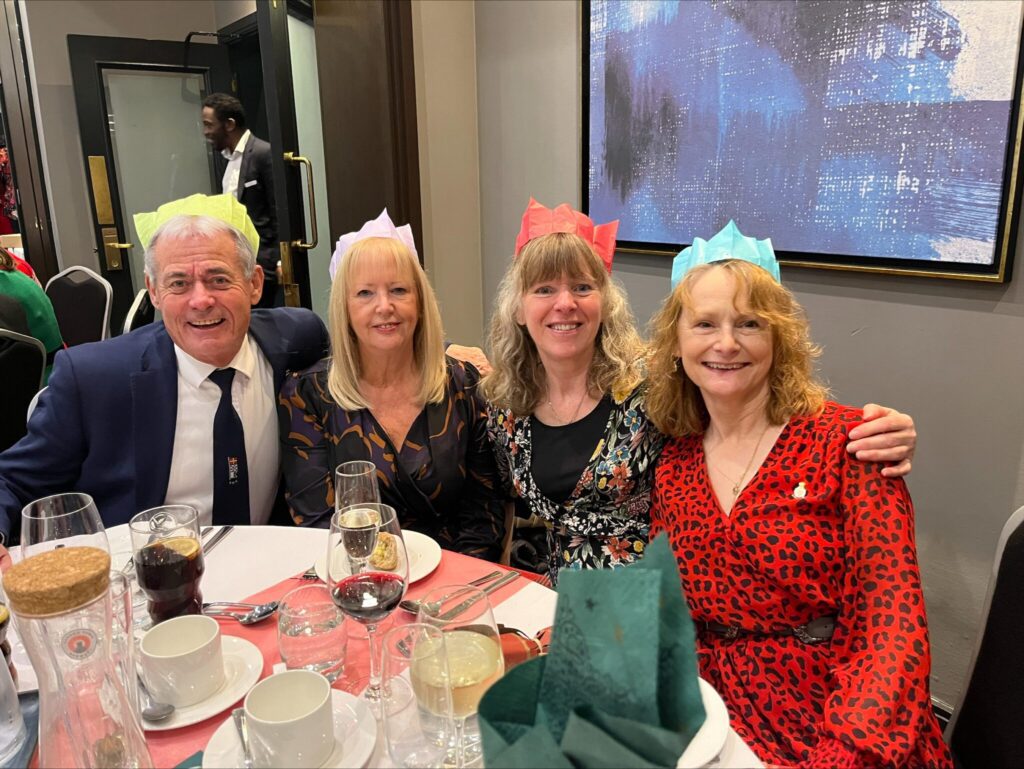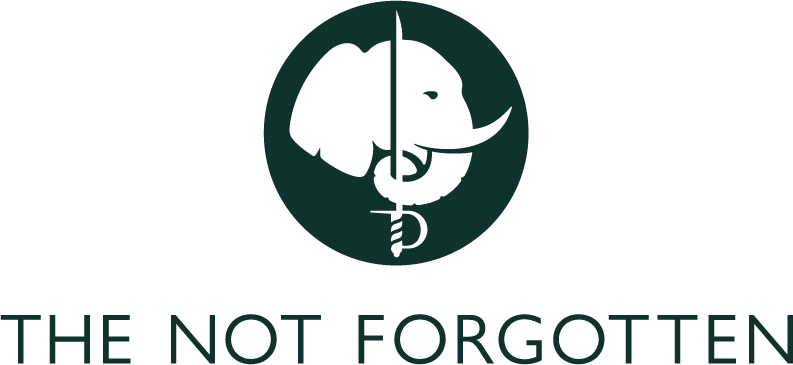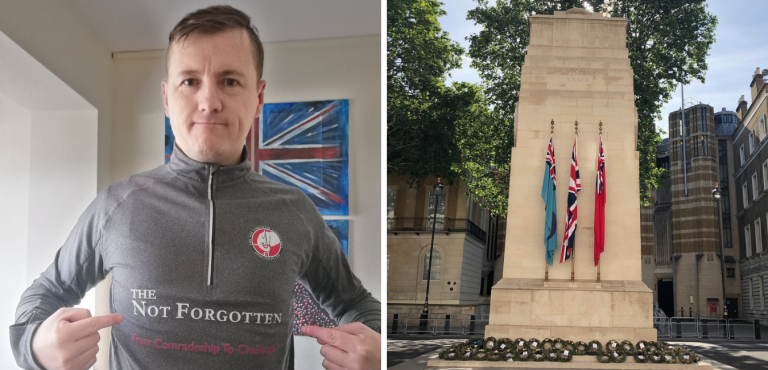International Women’s Day – Suzie’s Story
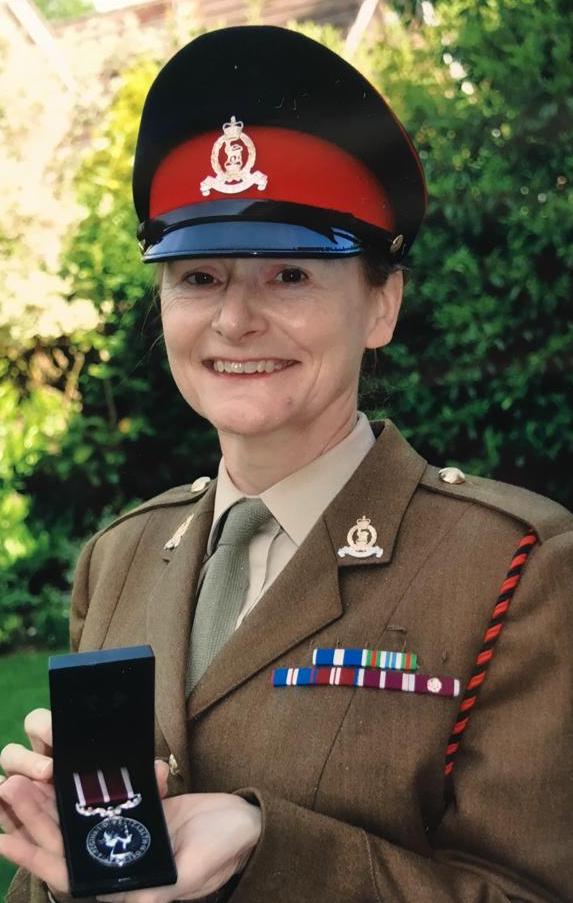
Suzanne Cumberland (better known as Suzie) served in the Army Adjutant General Corps (AGC) for 30 years, deploying all over the world to Naples, Lille, Oman, Kosovo, Germany, the Falklands and Ascension Island, and Sierra Leone.
She has had the most wonderful experiences in places she would never have imagined going and for the most part relished every challenge she faced – although with her fair share of trauma along the way.
As a single woman serving for three decades across varied postings Suzie has a fascinating perspective on how the role of women has changed in the Army over the past few decades; the widespread improvements as well as the challenges.
She tells us her story.
I was working as a postie when I joined the TA in 1989 (to get additional paid leave and time away from work!) then in 1993 I decided to join the Regular Army for a few years – thinking I’d be back at the Post Office soon… There was a lot happening in the world at that time: the Troubles in Northern Ireland, the first Gulf War, the war in the Balkans just kicking off. I wanted to do something that was ‘serving my country’, as my dad, granddad and great-grandad had all done.”
Suzie joined the AGC as it had “one of the shorter waiting lists” and trained as a Military Clerk – a role she was destined to spend her whole career in after a training accident: “I had to undergo several operations on my leg, which meant I wouldn’t be able to reach the required fitness standards if I transferred.”
“But although I remained a clerk, my career has taken a long and winding – and fascinating – road. With a very real sense of achievement.”
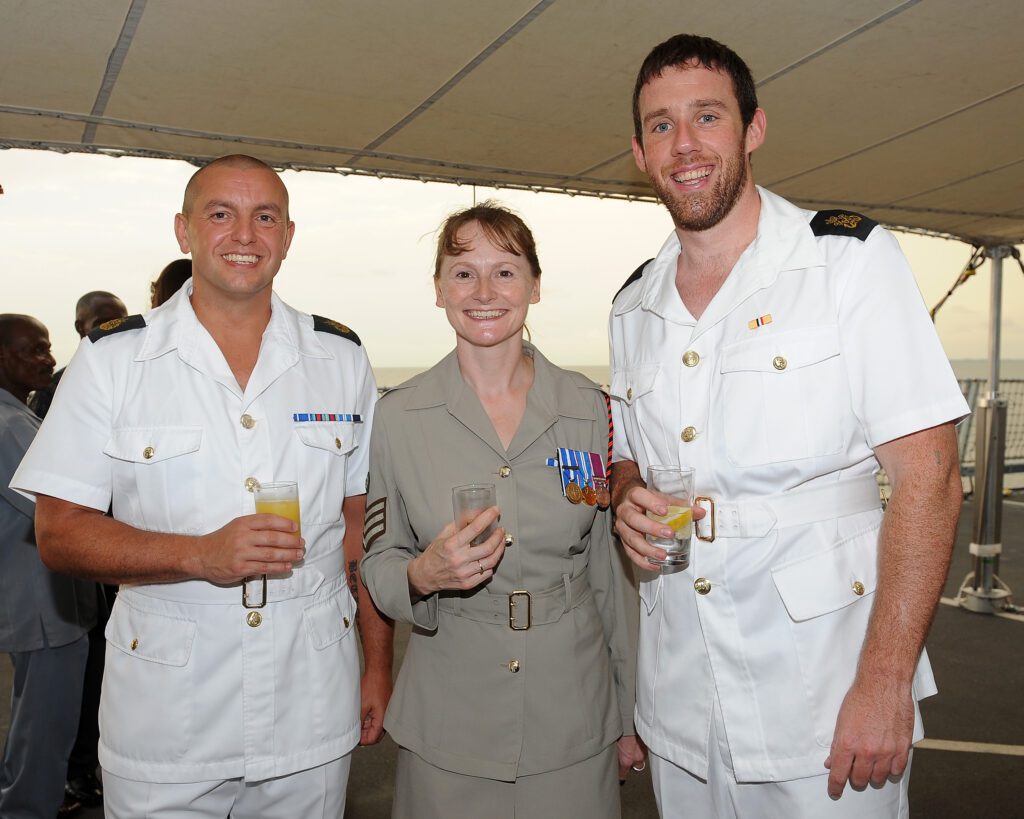
One of Suzie’s early tours was to Kosovo as hospital clerk. “I saw some horrendous things there. I went as a clerk but before I knew it there was a mass casualty incident and I was put in A&E, seeing people badly injured and labelling body parts from dead bodies. And of course, there was no post-trauma counselling then…”
Postings followed as Pay Sergeant to Sandhurst, Desk Admin Sergeant to Naples, and Staff Sergeant to the Falklands and Ascension Island: “The Falkland Islands are a stunning place, and somewhere I never thought I would have the opportunity to visit, let alone spend six months.”
After a tour to Paderborn and a training role at Worthy Down (Winchester) Suzie was offered the role of Assistant to the Defence Adviser (ADA) in Sierra Leone, West Africa – a posting which would shape Suzie’s life and experience in so many ways.
“I had always wanted to be an ADA and I thought it would be an adventure to have the opportunity to live and work in West Africa.” What began as an adventure in a beautiful country with friendly people and interesting experiences (acting as election monitor in presidential elections and dealing with all the logistics of RAF flights and British Navy Ship visits, as well as regular contact directly with the Minister for Defence back in the UK) turned into a nightmare when Ebola struck in early 2014. In the months before international aid arrived Suzie had to visit medical facilities and record fatalities; when aid finally arrived, she found herself taking delivery of the very of the first ambulances and hearses that Sierra Leone had ever had.
“Ebola broke me. It was soul-destroying. People were dying on the streets in front of me. I thought I was going to die myself. All international airlines withdrew from the country; it felt like we were on an island. Ebola is an extremely ferocious disease, and it absolutely decimates families. With a low level of education they didn’t know how to cope with the disease. I witnessed some horrific scenes I never want to see again; they will stick with me forever.”
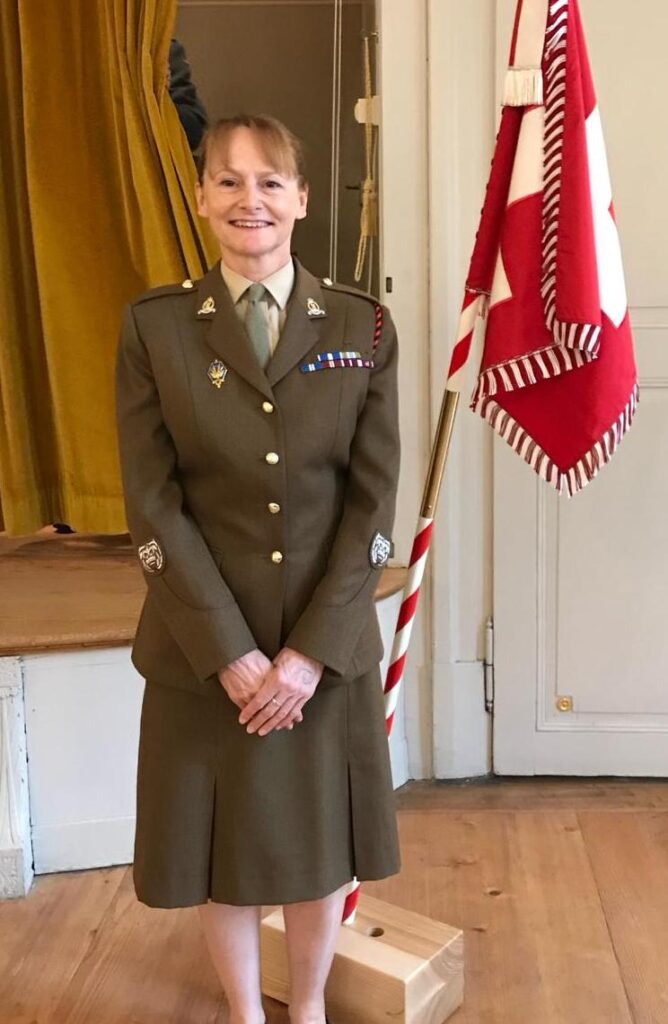
Though amidst the horror Suzie is proud of what she and the rest of the international aid effort was able to achieve in eventually turning the tide on the epidemic. She was awarded the Meritorious Service Medal for her part in the crisis as a key player in establishing Operation GRITROCK. “That was one of my proudest moments of my career”.
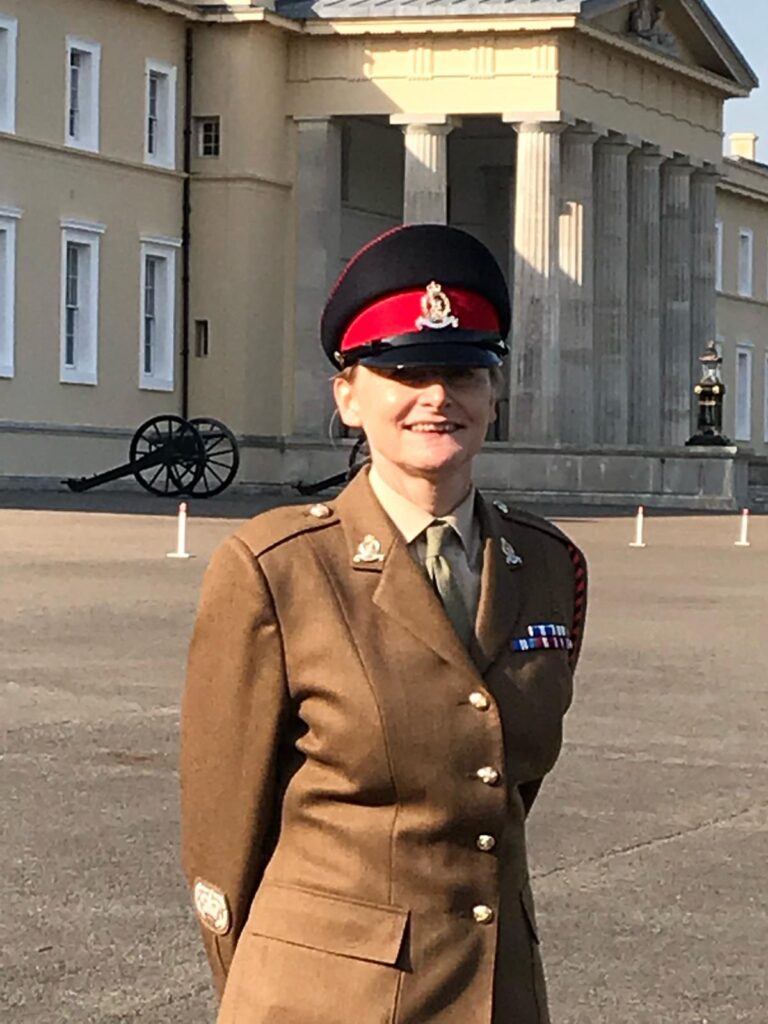
Over her thirty years in varied postings Suzie has seen the challenges facing women in the armed forces played out in many ways – as well as witnessing positive improvements in the female experience too, from the design of uniform to more awareness of the menopause.
“Unfortunately, the military is still a very misogynistic world. Very often as a woman you feel invisible; it’s much harder to get noticed. I always felt that I had to work three times harder on additional duties and extra activities to get promoted. Also, when I tried to report certain incidents, I was seen as a troublemaker, and it took over a year to get anyone to take note of a serious incident I tried to report. I was told things such as ‘it’s a clash of personality’ when I had text messages and emails proving otherwise.”
“On the physical fitness side, you always have to work harder to prove yourself – some of the men assume you won’t be able to keep up.” And there can be unwanted sexual attention – “the assumption that you’re ‘up for it’ as a single woman – especially on a night out if alcohol is involved.”
“When I was at Worthy Down even as late as 2009-2011 I was the only female instructor, and a lot of my male colleagues had a problem with that. I was always given a hard time and given all the rubbish jobs. Only once did one of the Warrant Officers pull up one of the others to say he was being chauvinistic.”
On the other hand, there have been huge improvements in gender equality since the early 90s. “Women now have more trades open to them. Personally, I wouldn’t want to serve on the frontline, but for those who do – and can pass the relevant tests – it’s good. Promotion to higher ranks is more possible – when I joined up there were no female brigadiers, but there are now.”
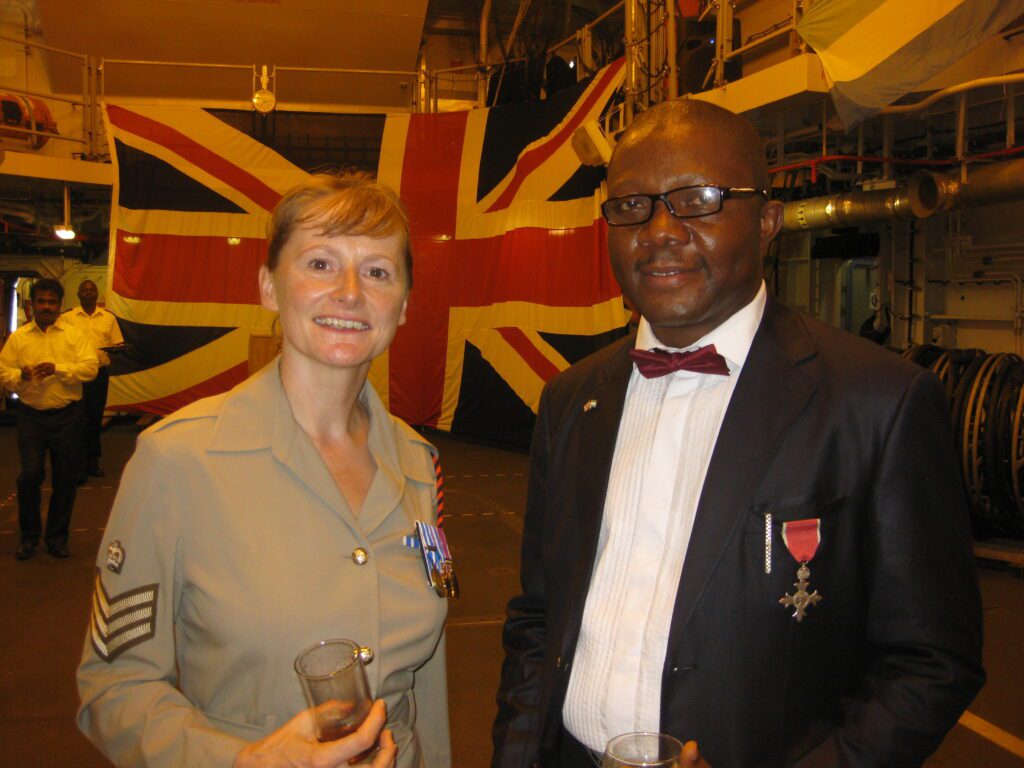
“I’ve also seen uniform evolve for the better for women over the years – like combat trousers being updated to a ‘female fit’ to avoid a male ‘bulge’! When I joined, there was just one style of men’s boots; now they have different styles and fits. During basic training in the early 90s I was in one of the first female platoons to do mixed training alongside the men. However we were still expected to dress in tiny little blue gym skirts and tight white aertex tops – senior men came to ‘observe’ this new way of training and we felt like they were gawping at us. Now men and women train in the same blue shorts and green t shirts.”
Another interesting thing Suzie has witnessed recently is greater awareness of the menopause: “Now that Army careers can be longer than 22 years the Army is seeing more women coming through over the age of 45 and are starting to bring in menopause training at the Med Centres. I was lucky because on my base at 33 Engineers Regiment there were civilian nurses there who diagnosed me as being perimenopausal, but it’s something military doctors are taking more notice of now.”
At the end of a thirty-year career what advice would Suzie give to young women in the forces today? “Take every opportunity to do different things if they’re there. Volunteer for everything; get any extra qualifications available. And if you know you’re right, don’t let anyone make you back down. There shouldn’t be any difference between females and males…”
